Lifestyle
Intriguing Aspects of the Digital Nomad Lifestyle You Need to Know

Have you ever dreamed of swapping your 9-to-5 grind for a life of freedom and adventure? You’re not alone. As a digital nomad, you can work from anywhere, traveling the world and soaking up new cultures. But it’s not all sunshine and rainbows.
Listen to the Article Summary
Let’s explore the perks and pitfalls of this lifestyle and uncover what it truly means to be a digital nomad. Are you ready to dive into the intriguing aspects of the digital nomad lifestyle?
Key Takeaways
- Embracing the philosophy of respect and cooperation
- Experiencing different cultures firsthand
- Navigating visa regulations and legal paperwork
- Prioritizing digital security and data protection
The Definition of a Digital Nomad Lifestyle
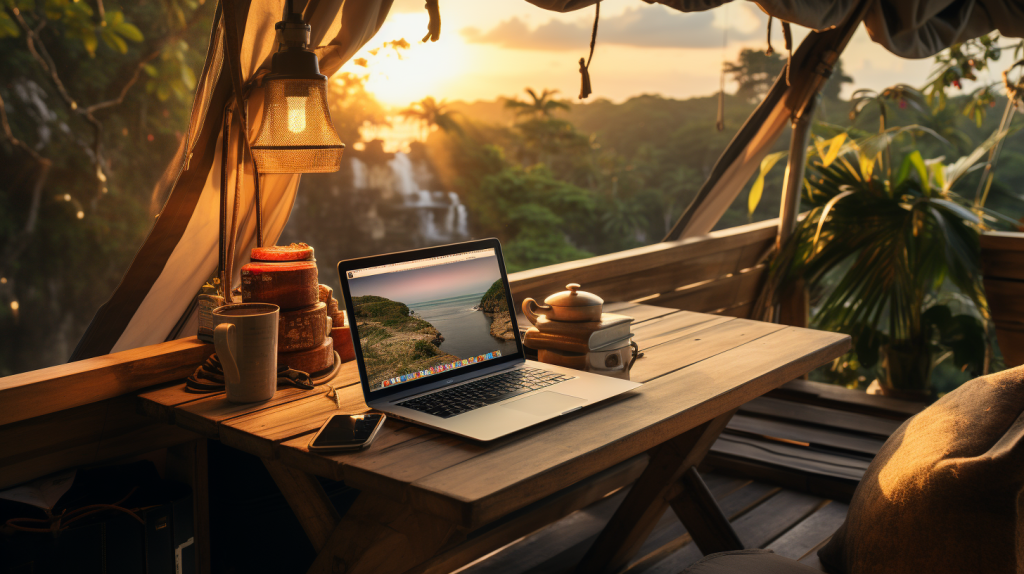
Where would you like to work from?
You’re currently delving into the definition of a digital nomad lifestyle, a way of living embraced by those who prefer working remotely rather than being tied to a specific location. It’s about nomadic ethics; a philosophy of respect and cooperation. It means understanding that as a digital nomad, you’re a guest in every new location you visit. You’re not just there to exploit the Wi-Fi and the local coffee shops. You’re there to contribute, to learn, and to grow as a person.
Cultural adaptability is essential. It’s not just about picking up a few local phrases, though that’s always appreciated. It’s about respecting local customs and traditions, understanding different ways of life, and finding beauty in diversity. It’s about freedom, but also responsibility.
This is the digital nomad lifestyle.
The Perks of Being a Digital Nomad
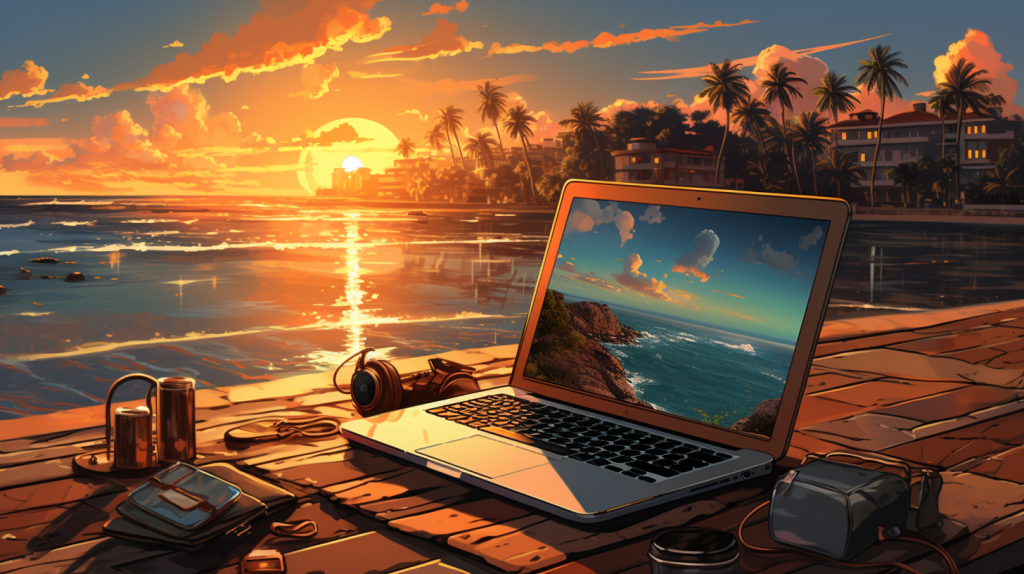
How about working from here?
There are countless perks you’ll enjoy as a digital nomad, from the freedom to work anywhere to the opportunity to experience different cultures firsthand. You’re not tied down, allowing you to explore the world at your own pace. So, pack your bags and get ready for an adventure!
At present, the count of U.S. employees who identify as digital nomads stands at 17.3 million, marking a rise of 2% from 2022 following a notable 131% increase from 2019 to 2022, the pre-pandemic times. Triggered by the transition to telecommuting in response to the pandemic, the concept of the digital nomad lifestyle gained traction and became a part of the mainstream in the period after the pandemic had subsided. As we stand in 2023, approximately 11% of the U.S. working population classifies itself as digital nomads.
Imagine tasting nomadic cuisine from various corners of the world, a gastronomic journey unlike any other. It’s not just about work; it’s also about savoring life’s flavors. Plus, with the right travel insurance, you’re covered for any unforeseen situations. It’s the safety net you need for a worry-free experience.
The Challenges of the Nomadic Life

If you could work from just about anywhere, where would you like to go?
Despite the many advantages, you’ll encounter several challenges living a nomadic lifestyle. Freedom comes with its own set of hurdles, but don’t let that deter you!
Here’s what you need to remember:
- Cultural adaptation
- Understanding different customs and traditions
- Overcoming language barriers
- Adjusting to local lifestyles
Visa regulations can also be a challenge. You’ll need to keep up with changing laws, manage visa durations and extensions, and handle the legal paperwork.
You’ll need to navigate through these issues while retaining your freedom-loving spirit. Remember, every place has its own charm and regulations. Embrace the former, respect the latter.
Now that you’re aware of these challenges, let’s transition into the next topic: financial management for digital nomads.
Financial Management for Digital Nomads

Can you imagine yourself here on a weekday morning?
Managing your finances as a digital nomad isn’t as daunting as it seems.
You’ll need to get a handle on budgeting while on the move.
Additionally, you’ll need to figure out where to invest and save.
Let’s get started on these topics, shall we?
Budgeting on the Move
You’ll need to allocate a significant amount of your income to cover unexpected expenses while budgeting on the move. Embrace the freedom of traveling frugally by being mindful of your daily expenses.
Nomadic meals to save money:
- Cook your meals to cut down on eating out.
- Buy local groceries and explore the local cuisine.
- Always carry snacks to avoid impulse food purchases.
These simple changes can make a big difference. Remember that freedom doesn’t mean you don’t have to plan. It’s about making choices that serve your journey best. Start thinking about how you can optimize your budget to your lifestyle, not the other way around.
That said, let’s transition into the next important topic for digital nomads: tax implications.
Investments and Savings
Investments and savings are two essential elements of your financial strategy as a digital nomad, and they can provide you with financial security during uncertain times.
Here’s how to harness them for your freedom lifestyle:
- Understand the Investment Risks:
- Market fluctuations can impact your investments’ value.
- Some investments may not provide the anticipated returns.
- Adhere to the investing rule of diversification to mitigate risks.
- Incorporate Retirement Planning:
- Don’t overlook your future financial needs while enjoying the present.
- Allocate a portion of your income towards a retirement fund.
- Consider smart retirement plans that offer tax benefits.
- Leverage your Savings:
- Savings can act as an emergency fund.
- They can help you ride out periods of low income.
- Regularly add to your savings for financial stability.
Essential Tools and Technologies

Would you like to do some continuing education or some work from here?
Your choice of essential tools and technologies can significantly impact your efficiency as a digital nomad. In the era of remote networking, you’re free to operate from anywhere. However, this freedom demands solid digital security. You can’t afford to lose your precious data or fall prey to cyber threats.
Invest in strong antivirus software and use encrypted connections. You’ll need robust cloud storage for easy accessibility of your files across various devices. Don’t forget productivity apps—they’re your lifelines. Tools like Trello and Slack can keep you organized, while Zoom or Google Meet facilitate virtual interaction.
Understanding Taxes and Legalities
You’ll need to grasp a considerable amount of tax laws and legalities to navigate your digital nomad lifestyle seamlessly. It’s not just about packing your bag and hitting the road; there’s more to it. You’ll need to understand:
Tax implications:
- How to declare your income
- Where to pay taxes
- Avoiding double taxation
Insurance intricacies:
- Choosing the right coverage for health and travel
- Understanding the terms and conditions
Nomad visa complications:
- Understanding the requirements
- Overcoming common issues like duration and renewals
- Navigating the application process
Don’t let these legal hurdles deter you. With a bit of research and planning, you can enjoy the freedom you desire, without falling foul of the law.
Building Relationships as a Digital Nomad

Wouldn’t it be cool to be able to stay in contact with friends while here?
Building a strong network is an essential aspect you’ve got to focus on as a digital nomad. It isn’t just about work, but also about forming meaningful relationships.
Nomad dating might seem challenging, but it’s an exciting way to meet like-minded individuals who understand your love for freedom and adventure. Embrace the chance to explore different cultures, adapting to their norms while preserving your own identity. This cultural adaptation isn’t a one-way street; it’s a dynamic exchange that enriches your life and broadens your perspective.
The Importance of Work-Life Balance

Would you like to relax here?
You’ve probably heard the phrase ‘work-life balance‘ before, but what does it truly mean, especially for a digital nomad?
It’s not just about splitting time equally, there are unique challenges to balancing work and personal life when you’re constantly on the move.
Defining Work-Life Balance
There’s no one-size-fits-all approach when it comes to defining work-life balance, as it varies greatly from one individual to another. As a digital nomad, you might find your balance in a blend of Remote Networking and Virtual Fitness activities.
These could be your keys to the much-desired freedom.
- Remote Networking
- Connect with colleagues or clients across the globe
- Attend virtual meetings or workshops
- Engage in online team-building activities
- Virtual Fitness
- Join online workout classes
- Use fitness apps for personalized routines
- Participate in virtual challenges or competitions
Balance Challenges for Nomads
As a nomad, you’ll encounter several balance challenges that require unique solutions. One of these is nomadic nutrition; maintaining a balanced diet while constantly on the move isn’t a piece of cake. You’re not just living for the thrill; you’re also caring for your body’s needs. So, take charge, research local foods, and embrace cooking.
Another hurdle is your environmental impact. You love the freedom of wide-open spaces, but remember, they’re not just your playground. They’re home to countless species, and your actions matter. Be mindful of your waste and energy consumption. Opt for sustainable travel means when possible.
In essence, living the nomad life isn’t just about embracing freedom; it’s about balancing your needs with the world’s. It’s a challenge, but it’s also a beautiful journey.
Achieving Nomadic Balance
You’re striving for nomadic balance, and it’s vital to remember that work-life equilibrium plays a significant role in this endeavor. Living as a digital nomad, it’s not just about getting the job done, but also about experiencing the freedom and embracing the lifestyle fully.
Nomadic Nutrition:
- Fuel your body correctly. You’re free to explore local cuisines but remember to maintain a balanced diet.
- Carry essential supplements to avoid nutritional deficiencies.
Cultural Adaptation:
- Engage with locals, learn their customs. It contributes to your personal growth and enriches your nomadic experience.
- Respect local norms and traditions. Freedom doesn’t mean disregarding others’ values.
Staying Healthy While Traveling

How would it feel to be a digital nomad from here?
Where do you usually find healthy food options when you’re on the road? It’s not always easy, but it’s crucial to your well-being.
You’re not tied down, remember? Freedom means you have the choice to seek out nutritious meals instead of settling for fast food.
Keeping up with your fitness routines can also be a challenge while traveling. It’s all about balance.
Don’t forget about travel immunizations, either. They’re a necessary safeguard to maintain your health and keep the adventure going.
You’re exploring the world, not confined by four walls. You’re a digital nomad, not a static creature.
Embrace your freedom, and let it guide your choices towards health and vitality.
How to Handle Loneliness and Isolation
When you’re on the road, loneliness and isolation can creep up on you. It’s crucial to find ways to overcome solitude and foster connections, even if they’re virtual.
Let’s discuss how you can build these online relationships and manage feelings of isolation as a digital nomad.
Overcoming Solitude
Feeling lonely can be a real challenge in the digital nomad lifestyle, but there are strategies you can use to overcome this solitude. Emotional resilience and self motivation techniques become your allies in this journey.
Here’s a few you can adopt:
- Cultivate Emotional Resilience:
- Practice mindfulness, it’ll help you understand your emotions better
- Show kindness to yourself, you’re doing the best you can
- Develop Self Motivation Techniques:
- Set personal goals and celebrate when you achieve them
- Surround yourself with positivity, it breeds motivation
- Embrace the Freedom:
- Use this time to explore your passions, reinvent yourself if you wish
Remember, solitude isn’t a prison. It’s an opportunity to grow.
Now, let’s transition into the next topic: building virtual relationships.
Building Virtual Relationships
You’re now entering the realm of building virtual relationships, where empathy and understanding take center stage in combating the abstract enemy of loneliness. Virtual dating is your new frontier, a place where love and connection are just a click away. Though it’s a digital arena, you’re still free to express your desires and emotions, making it an exhilarating ride.
However, remember that digital etiquette is your guiding light here. It ensures that respect and politeness don’t get lost in the virtual world. So, keep your words kind, your intentions clear, and your actions respectful. You’re not just building relationships; you’re also establishing your presence in the virtual realm.
As a digital nomad, you crave freedom, and this is an integral part of your journey.
Educational Opportunities for Digital Nomads
In the realm of educational opportunities, it’s crucial for you, as a digital nomad, to capitalize on online courses and resources. Nomadic learning isn’t just a trend; it’s your ticket to personal growth while living a life of freedom.
E learning platforms offer a wealth of knowledge at your fingertips, anytime, anywhere.
Key Aspects of Nomadic Learning:
- Flexibility: Learn at your own pace, in your own space.
- Variety: Access a broad range of courses across different disciplines.
- Cost-Effective: Often cheaper than traditional education.
The Future of the Digital Nomad Lifestyle
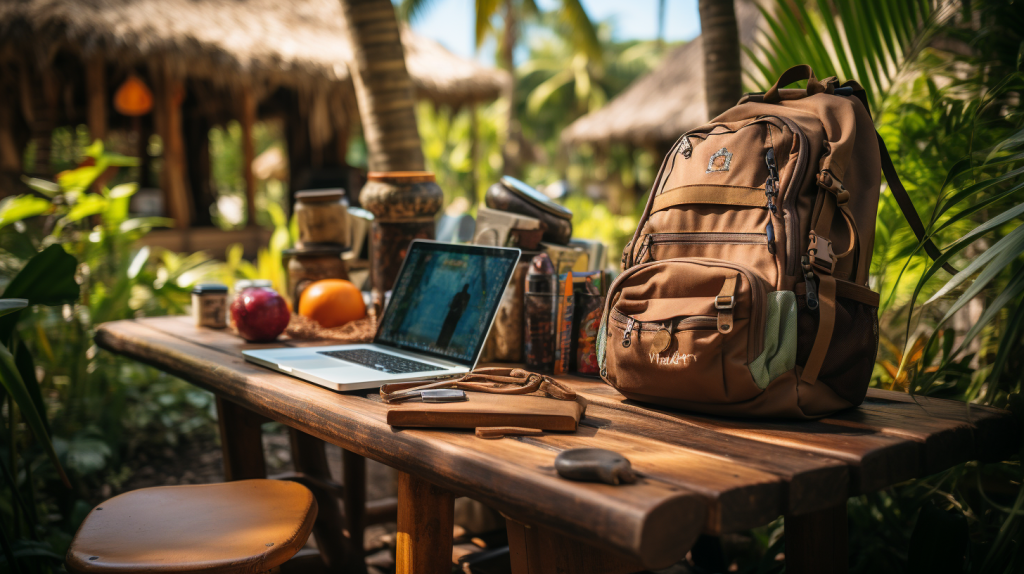
Would you enjoy being here?
While you’re navigating the educational opportunities of the digital nomad lifestyle, don’t forget to consider its future prospects and how they could shape your choices.
There’s a lot of chatter about nomadic sustainability and what digital nomadism future predictions might mean for you.
You’re seeking freedom, but remember, even freedom requires some planning. Will the digital nomad lifestyle continue to be sustainable? What’ll the future of work look like? It’s essential to keep these questions in mind.
The digital nomad lifestyle isn’t just about living in the now; it’s about preparing for tomorrow. So, while you’re savoring the freedom of working from anywhere, never forget to think about how you can sustain this lifestyle for years to come.
Wrapping It Up
Just like a butterfly, you’re free to flutter from place to place as a digital nomad, but remember, it’s not always sunshine and daisies. You’ll face challenges, like managing finances and combating loneliness. But with the right tools, a focus on health, and embracing educational opportunities, you can conquer anything. The future is bright, promising an enriched life filled with thrilling adventures and personal growth. So spread your wings, the world is your oyster!
Case Study: 2023 Digital Nomads Report – Nomadism Enters the Mainstream
- Source: Link
- Key Points:
- Digital nomadism has become mainstream, with 17.3 million Americans (11% of workers) identifying as digital nomads in 2023.
- The report highlights the demographic shift among digital nomads, with a significant increase in older digital nomads.
- Factors like travel aspirations, remote work trends, and interest in digital nomadism continue to drive growth in this lifestyle.
- Challenges faced by digital nomad families include educational issues, expenses, safety concerns, and lack of stability.
References
- https://pumble.com/learn/digital-nomad-visa/statistics/
- https://gitnux.org/digital-nomad-statistics/
- https://www.statista.com/statistics/1298313/number-digital-nomads-united-states/
- https://www.mbopartners.com/state-of-independence/digital-nomads/
- https://learn.adventuretravel.biz/research/work-and-wander-meet-todays-digital-nomads
Frequently Asked Questions
What Are Some Common Misconceptions About the Digital Nomad Lifestyle?”
You might believe digital nomads are constantly broke and lonely. That’s not true. Nomad finances can be stable with remote work, and nomad networking creates a global community. It’s a lifestyle of freedom, not limitation.
How Does One Handle Language Barriers and Cultural Differences While Living the Digital Nomad Lifestyle?”
You’ll conquer language barriers like a linguistic superhero using language learning techniques. Grasp cultural etiquette basics, and you’ll navigate cultural differences smoother than a diplomat. It’s freedom in its purest form, the digital nomad way.
What Are the Common Insurance Considerations for a Digital Nomad?”
You’ll need to consider healthcare accessibility and emergency coverage. It’s vital to have a plan that covers you internationally and for emergencies. Don’t let insurance worries tie you down. Explore freely, but safely.
What Are the Best Ways to Stay Safe When Living and Working in Unfamiliar Places as a Digital Nomad?”
Prioritize personal security measures, pal. Always alert, you’ll avoid issues. Use nomadic networking to connect with locals and fellow travelers for safety tips. Embrace this freedom, but don’t ditch diligence in unfamiliar places.
How Do Digital Nomads Manage to Maintain a Consistent Routine or Schedule?”
You’ll master time management and productivity hacks as a digital nomad. It’s about setting personal routines, prioritizing tasks, and leveraging tech tools to keep track of your schedule, no matter where you’re exploring.
Author Bio
A committed writer and ardent wanderer, Anna has been intuitively guiding her audience on the journey of wealth creation and preservation since 2012. Her expertise in economics is curated from her academic pursuits at the University of Michigan in Ann Arbor, where she not only acquired her degree in economics but also delved into the studies of mental health. Driven by a passion for instilling financial literacy and ameliorating mental health awareness, Anna beautifully intertwines her love for writing and adventure to craft captivating and enlightening articles. Whether she’s trailblazing through the mountains or navigating the dynamic urban jungles, Anna’s adventurous spirit, coupled with her financial acumen, illuminates her work, offering her readers a rich, invigorating experience.
Social Posts
X/Twitter
Ditch the 9-to-5 and embrace the digital nomad lifestyle, where work meets adventure in every corner of the world. Discover the exhilarating highs and unexpected lows of this life of freedom – are you ready for the journey?https://t.co/vgQE11RNBZ
— Balanced Life News (@balancedlifenew) March 8, 2024

Lifestyle
Eco-Friendly Travel: Tips for Sustainable Adventures

Are you an adventurous traveler passionate about exploring the world, but also deeply caring about protecting the planet? You’re not alone. Sustainable travel is a rapidly growing trend, with more and more globetrotters seeking ways to minimize their environmental impact while immersing themselves in new cultures and breathtaking destinations.
Listen to the Article Summary
In this post, we’ll look at practical tips and insights to help you embark on eco-friendly adventures that benefit you and the planet. So grab your reusable water bottle and start this green journey together!
The Importance of Sustainable Travel
Before we get to specific tips, let’s take a moment to understand why eco-friendly travel matters. A recent United Nations World Tourism Organization (UNWTO) statistic indicates that international tourist arrivals reached 88% of pre-pandemic levels in January-December 2023. This data highlights a significant recovery in international tourism following the challenges posed by the COVID-19 pandemic.
While travel brings immense cultural and economic benefits, it contributes to carbon emissions, waste generation, and strain on local resources.
As Mark Twain famously said, “Travel is fatal to prejudice, bigotry, and narrow-mindedness.” By choosing sustainable travel practices, we can ensure that our adventures broaden our perspectives and protect the very places and communities we seek to explore.
Choosing Eco-Friendly Accommodations

Look for properties that have implemented practices like energy efficiency, water conservation, waste reduction, and the use of local and organic products.
One of the most significant aspects of sustainable travel is selecting accommodations that prioritize environmental responsibility. Look for hotels, resorts, or lodges that have earned eco-certifications, such as LEED (Leadership in Energy and Environmental Design) or Green Globe. These certifications indicate that the property has implemented practices like energy efficiency, water conservation, waste reduction, and the use of local and organic products.
Ecobnb, a platform dedicated to sustainable accommodations, reports that their listed properties save an average of 29 kg of CO2 per night (295 trees saved) and save an average of 302l fresh water per night compared to traditional hotels. Opting for eco-friendly lodging can significantly reduce your carbon footprint while enjoying a comfortable and memorable stay.
Green Transportation Options
Transportation is another key area where travelers can make eco-friendly choices. Whenever possible, opt for low-impact modes of transport like walking, cycling, or public transit. These options reduce carbon emissions and allow you to immerse yourself in the local culture and discover hidden gems along the way.
If you must fly, consider booking with airlines with strong sustainability initiatives. For example, KLM Royal Dutch Airlines has committed to using sustainable aviation fuel and aims to reduce CO2 emissions by 15% by 2030. You can also offset your flight’s carbon emissions through reputable programs like Carbon Fund or Gold Standard.
Supporting Local Communities
Sustainable travel isn’t just about reducing environmental impact; it’s also about supporting local communities and economies. When planning your itinerary, seek experiences that directly benefit the people and places you visit. This might include staying at locally-owned accommodations, dining at farm-to-table restaurants, or participating in community-based tourism initiatives.
Intrepid Travel, a leading adventure travel company, has witnessed firsthand the positive impact of community-focused tourism. Outcomes include:
- Renewal or support for traditional practices
- Empowerment of women
- Support of household livelihood
- Direct employment opportunities
Reducing Waste on the Go
Single-use plastics are a major environmental concern, and they can quickly accumulate during travel. To minimize your waste footprint, pack reusable items like water bottles, shopping bags, and straws. Many destinations now have refill stations where you can top up your water bottle, reducing the need for disposable plastic bottles.
When dining out, choose restaurants that use eco-friendly packaging or bring your own containers for takeaway meals. Small actions like these can add up to a significant reduction in waste over the course of your travels.
Respecting Wildlife and Natural Habitats
For many travelers, witnessing incredible wildlife and exploring pristine natural environments is a highlight of their adventures. However, it’s crucial to engage in these experiences responsibly to minimize disturbance to the animals and their habitats.
When participating in wildlife tourism activities, choose operators that adhere to strict ethical guidelines and prioritize animal welfare. For example, the World Cetacean Alliance sets standards for responsible whale and dolphin watching, ensuring that these magnificent creatures are observed respectfully and without causing undue stress.
In natural areas like beaches, forests, and mountains, follow the principles of “Leave No Trace.” This means packing out all your trash, staying on designated trails, and avoiding damaging or removing natural objects like shells, plants, or rocks. By treading lightly, we can preserve these fragile ecosystems for generations to come.
Educating and Inspiring Others
As an eco-conscious traveler, you have the power to inspire others to adopt sustainable practices. Share your experiences, insights, and tips with friends, family, and fellow adventurers. Use social media platforms to showcase the beauty of the places you visit and highlight the importance of responsible tourism.
“The power of one, if fearless and focused, is formidable, but the power of many working together is better.”
By spreading the message of sustainable travel, you can contribute to a growing global movement for positive change.
All in All
Embarking on eco-friendly adventures is not only a way to explore the world responsibly but also an opportunity to deepen your connection with the places and people you encounter. By choosing sustainable accommodations, transportation, and activities, supporting local communities, reducing waste, respecting wildlife, and educating others, you become an active participant in preserving our planet’s precious resources and cultural heritage.
As the great conservationist Jane Goodall once said, “What you do makes a difference, and you have to decide what kind of difference you want to make.” So, as you plan your next adventure, ask yourself: what kind of traveler do you want to be? By embracing eco-friendly practices, you can make a meaningful difference while still indulging your wanderlust and creating unforgettable memories. The world is waiting for you, sustainable traveler. Go forth and explore responsibly!
Resources:
- Ecobnb – Sustainable Accommodations
- Intrepid Travel – Sustainable Adventure Travel
- KLM Royal Dutch Airlines – Sustainability Initiatives
- World Cetacean Alliance – Responsible Whale Watching
- Tourism Statistics
- Our World in Data
- National Travel and Tourism Research
- UN Tourism Data Dashboard
FAQs for Eco-Friendly Travel
What is sustainable travel?
Sustainable travel is an approach to tourism that minimizes negative environmental, social, and economic impacts while maximizing benefits for local communities and destinations. It involves making responsible choices that preserve natural resources, respect cultural heritage, and support the well-being of host communities.
Why is sustainable travel important?
Sustainable travel is crucial because it helps protect the planet’s precious resources, supports local economies, and preserves cultural heritage for future generations. By adopting sustainable practices, travelers can reduce their carbon footprint, minimize waste, and contribute to the long-term health and vitality of the destinations they visit.
What should I look for when choosing eco-friendly accommodations?
When selecting eco-friendly accommodations, look for properties that have earned recognized sustainability certifications, such as LEED or Green Globe. These certifications indicate that the hotel or resort has implemented practices like energy efficiency, water conservation, waste reduction, and the use of local and organic products.
Are eco-friendly accommodations more expensive than traditional hotels?
While some eco-friendly accommodations may have slightly higher rates due to their sustainable practices and initiatives, many are competitively priced compared to traditional hotels. Additionally, by supporting these properties, you are contributing to the long-term sustainability of the destination, which can have far-reaching benefits.
What are some eco-friendly transportation options for travelers?
Eco-friendly transportation options include walking, cycling, using public transit, or opting for electric or hybrid vehicles when renting a car. These low-impact modes of transport reduce carbon emissions and allow you to explore destinations at a slower pace, immersing yourself in the local culture.
How can I offset my carbon emissions from flying?
If flying is necessary, you can offset your carbon emissions by purchasing carbon offsets through reputable programs like Carbon Fund or Gold Standard. These programs invest in projects that reduce greenhouse gas emissions, such as renewable energy initiatives or reforestation efforts, to balance out the emissions from your flight.
How can I support local communities while traveling?
You can support local communities by choosing locally-owned accommodations, dining at farm-to-table restaurants that source ingredients from nearby producers, and participating in community-based tourism initiatives. By directly supporting local businesses and initiatives, you help create jobs, preserve cultural heritage, and improve livelihoods in the destinations you visit.
What are some examples of community-based tourism initiatives?
Examples of community-based tourism initiatives include staying at a family-run guesthouse, taking a cooking class with a local chef, participating in a guided tour led by a community member, or purchasing handcrafted souvenirs directly from artisans. These experiences provide authentic interactions with local people and support the local economy.
How can I reduce waste while traveling?
To reduce waste while traveling, pack reusable items like water bottles, shopping bags, and straws. Avoid single-use plastics whenever possible, and opt for accommodations and restaurants that prioritize waste reduction and eco-friendly practices. When dining out, bring your own containers for takeaway meals or choose restaurants that use biodegradable packaging.
Are there any destinations that have banned single-use plastics?
Yes, several destinations around the world have implemented bans or restrictions on single-use plastics to combat waste and protect the environment. Some examples include Bali, Kenya, and the European Union, which has banned single-use plastic items like straws, cutlery, and cotton buds.
How can I ensure that my wildlife tourism activities are ethical and responsible?
When participating in wildlife tourism activities, choose operators that adhere to strict ethical guidelines and prioritize animal welfare. Look for companies that are endorsed by reputable organizations, such as the World Cetacean Alliance for whale and dolphin watching, or those that follow established guidelines for wildlife viewing and interaction.
What is the “Leave No Trace” principle?
The “Leave No Trace” principle is a set of guidelines for minimizing human impact on natural environments. It involves practices such as packing out all trash, staying on designated trails, avoiding damage to vegetation, and respecting wildlife by observing from a distance. By following these principles, travelers can help preserve fragile ecosystems for future generations.
How can I inspire others to adopt sustainable travel practices?
You can inspire others to adopt sustainable travel practices by sharing your experiences, insights, and tips through social media, blogs, or conversations with friends and family. Highlight the positive impact of your eco-friendly choices and encourage others to make small changes in their travel habits. Leading by example and providing practical advice can motivate others to embrace sustainable tourism.
Are there any organizations or resources that promote sustainable travel?
Yes, there are numerous organizations and resources dedicated to promoting sustainable travel. Some examples include the Global Sustainable Tourism Council, which sets standards for sustainable tourism practices; Sustainable Travel International, which offers tips and resources for responsible travel; and the United Nations World Tourism Organization, which promotes sustainable tourism development.
Author Bio
A committed writer and ardent wanderer, Anna has been intuitively guiding her audience on the journey of wealth creation and preservation since 2012. Her expertise in economics is curated from her academic pursuits at the University of Michigan in Ann Arbor, where she not only acquired her degree in economics but also delved into the studies of mental health. Driven by a passion for instilling financial literacy and ameliorating mental health awareness, Anna beautifully intertwines her love for writing and adventure to craft captivating and enlightening articles. Whether she’s trailblazing through the mountains or navigating the dynamic urban jungles, Anna’s adventurous spirit, coupled with her financial acumen, illuminates her work, offering her readers a rich, invigorating experience.
Social Posts
X/Twitter
Discover how to travel sustainably with our top tips, and embark on eco-friendly adventures that thrill and protect the planet!https://t.co/grvv55fQR0
— Balanced Life News (@balancedlifenew) March 16, 2024
Health
10 Simple Lifestyle Changes to Get Healthier

Are you tired of feeling sluggish, unmotivated, and out of shape? Do you want to reclaim your health and vitality but feel overwhelmed by complicated diet and exercise plans?
Listen to the Article Summary
The truth is, you don’t need to undergo a massive life overhaul to get healthier. Small, sustainable changes to your daily habits can profoundly impact your overall wellness. In this blog post, we’ll explore ten simple lifestyle adjustments that can kickstart your journey toward a healthier you.
Drink More Water
Staying hydrated is crucial for optimal bodily function. Aim to drink at least eight glasses of water daily to keep your organs functioning properly, your skin glowing, and your energy levels up. Carry a reusable water bottle and sip daily to make hydration a habit.
Move More
You don’t need to join a gym or start an intense exercise regimen to get more active. Simple changes like taking the stairs instead of the elevator, parking further away from your destination, or walking briskly can significantly increase physical activity levels and improve cardiovascular health.

Would you like to relax and practice mindfulness?
Prioritize Sleep
Adequate sleep is essential for physical and mental well-being. Aim for seven to nine hours of quality sleep each night. Establish a consistent sleep schedule, create a calming bedtime routine, and optimize your sleep environment by keeping the room cool, dark, and free from electronic distractions.
Eat More Fruits and Vegetables
Fresh produce contains essential vitamins, minerals, antioxidants, and fiber that nourish your body and support overall health. Make a conscious effort to include a variety of colorful fruits and vegetables in every meal and snack. Experiment with new recipes to make eating nutritious foods exciting and enjoyable.

Add more vegetables to your diet
Reduce Stress
Chronic stress can wreak havoc on your physical and mental well-being. Find healthy ways to manage stress, such as practicing deep breathing exercises, meditation, yoga, or engaging in hobbies or activities that bring joy and relaxation. Prioritize self-care and make time for activities that help you unwind and recharge.
Connect with Others
Strong social connections are vital for maintaining good mental health and overall well-being. Make an effort to spend quality time with family and friends, join a social club or group, or volunteer in your community. Nurturing meaningful relationships can provide a sense of belonging and emotional support.

Would you like to spend more time with friends?
Limit Processed Foods
Processed foods are often high in unhealthy additives, such as sodium, sugar, and unhealthy fats, contributing to various health issues. Focus on whole, minimally processed foods like lean proteins, whole grains, legumes, and fresh produce to nourish your body with essential nutrients.
Practice Mindful Eating
Mindful eating involves being present and aware during mealtimes, paying attention to your body’s hunger and fullness cues, and savoring each bite. This practice can help you develop a healthier relationship with food, reduce overeating, and increase your enjoyment and satisfaction from meals.

Wouldn’t this be relaxing?
Spend Time Outdoors
Exposure to natural environments has been shown to have numerous health benefits, including improved mood, reduced stress, and increased physical activity. Make it a habit to spend time outdoors each day, whether going for a walk in the park, hiking, gardening, or simply sitting outside and appreciating nature.
Learn Something New
Engaging in new activities that challenge your brain and provide opportunities for personal growth can boost cognitive function and contribute to overall well-being. Take a class, learn a new skill, read books on interesting topics, or pick up a new hobby to keep your mind active and stimulated.

What kind of class would you take to learn something new?
Wrapping It Up
Remember, lasting change doesn’t happen overnight. Start small and focus on implementing one or two lifestyle changes at a time. Celebrate your progress, no matter how modest, and don’t be discouraged by setbacks. With consistency and patience, these simple adjustments will gradually become habits that support a healthier, more vibrant you.
Embrace the transformative power of small changes and embark on a journey toward improved physical, mental, and emotional well-being. A healthier lifestyle is within your reach, one step at a time.
Lifestyle + Health FAQs
How much water should I drink daily?
Aim to drink at least eight glasses of water daily to stay hydrated.
What are some simple ways to increase physical activity?
Take the stairs, park further away, and go for daily walks to easily incorporate more movement into your day.
How much sleep should I get each night?
Aim for seven to nine hours of quality sleep per night to support overall health and well-being.
Why is eating more fruits and vegetables important?
Fresh produce contains essential vitamins, minerals, antioxidants, and fiber that nourish your body and promote good health.
What are some healthy ways to manage stress?
Practice deep breathing exercises, meditation, yoga, or hobbies and activities that bring you joy and relaxation.
How can social connections benefit my health?
Strong social connections provide a sense of belonging, emotional support, and contribute to maintaining good mental health and overall well-being.
Why should I limit processed foods?
Processed foods are often high in unhealthy additives like sodium, sugar, and unhealthy fats, which can contribute to various health issues.
What is mindful eating, and why is it important?
Mindful eating involves being present and aware during mealtimes, paying attention to hunger and fullness cues, and savoring each bite, which can help develop a healthier relationship with food.
How can spending time outdoors improve my health?
Exposure to natural environments has been shown to have numerous health benefits, including improved mood, reduced stress, and increased physical activity.
Why is it beneficial to learn something new?
Engaging in activities that challenge your brain and provide opportunities for personal growth can boost cognitive function and contribute to overall well-being.
Author Bio
A committed writer and ardent wanderer, Anna has been intuitively guiding her audience on the journey of wealth creation and preservation since 2012. Her expertise in economics is curated from her academic pursuits at the University of Michigan in Ann Arbor, where she not only acquired her degree in economics but also delved into the studies of mental health. Driven by a passion for instilling financial literacy and ameliorating mental health awareness, Anna beautifully intertwines her love for writing and adventure to craft captivating and enlightening articles. Whether she’s trailblazing through the mountains or navigating the dynamic urban jungles, Anna’s adventurous spirit, coupled with her financial acumen, illuminates her work, offering her readers a rich, invigorating experience.
Social Posts
X/Twitter
Ready to ditch the blah and embrace the aha? Dive into our latest blog for 10 easy peasy lifestyle tweaks that’ll have you glowing from the inside out! #HealthierYouhttps://t.co/ixYW7MSYrw
— Balanced Life News (@balancedlifenew) February 25, 2024
-

 Health1 year ago
Health1 year ago10 Simple Lifestyle Changes to Get Healthier
-

 Health1 year ago
Health1 year agoSupercharge Your Health: 10 Immunity-Boosting Superfoods
-

 Lifestyle1 year ago
Lifestyle1 year agoEco-Friendly Travel: Tips for Sustainable Adventures
-

 Relationships1 year ago
Relationships1 year agoNegotiation Skills for Everyday Conflicts
-

 Health1 year ago
Health1 year agoMaximizing Life Quality: Uniting Health & Wealth
-

 Health1 year ago
Health1 year agoDoes mindfulness practice improve the quality of sleep?


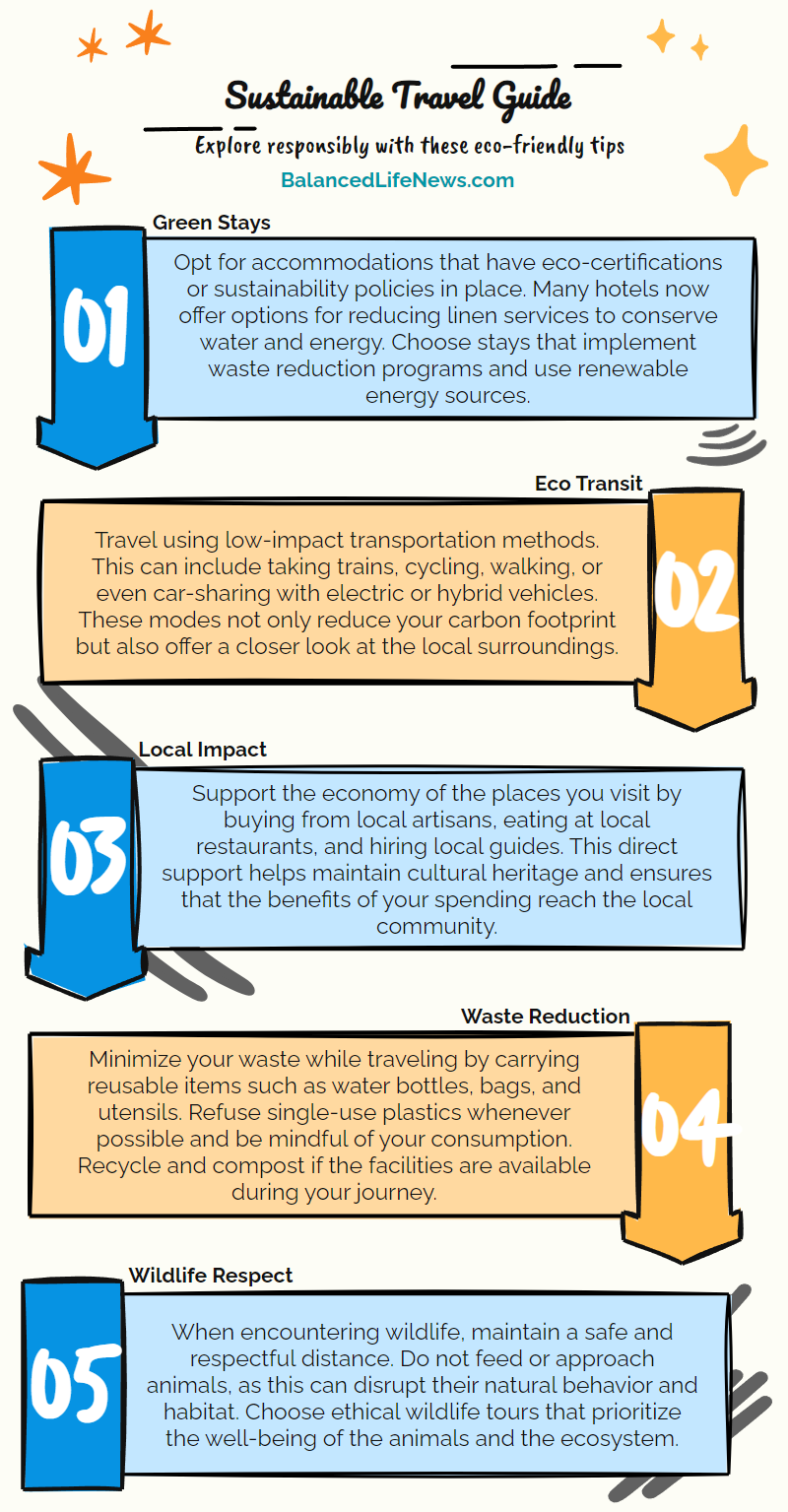

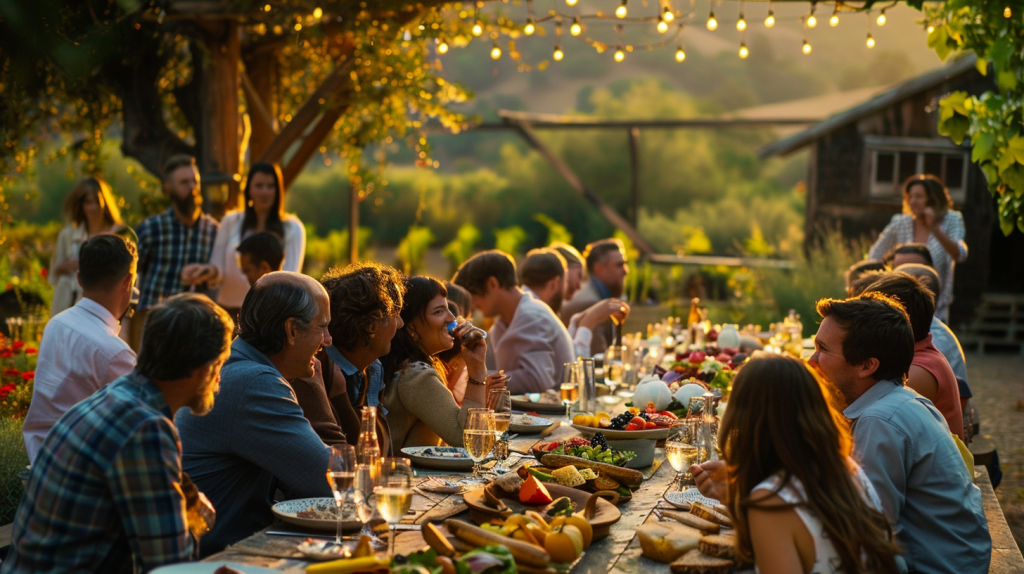
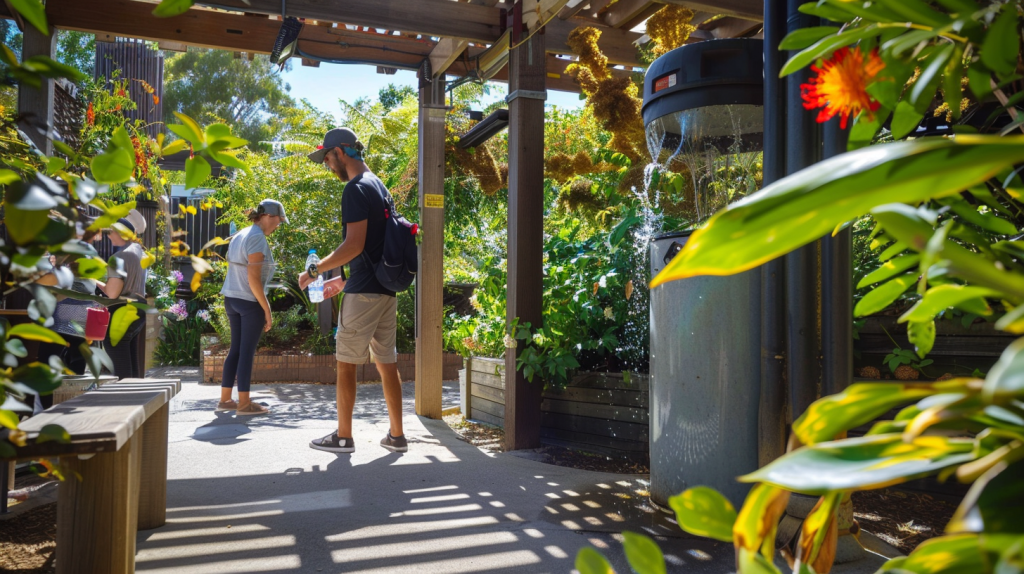

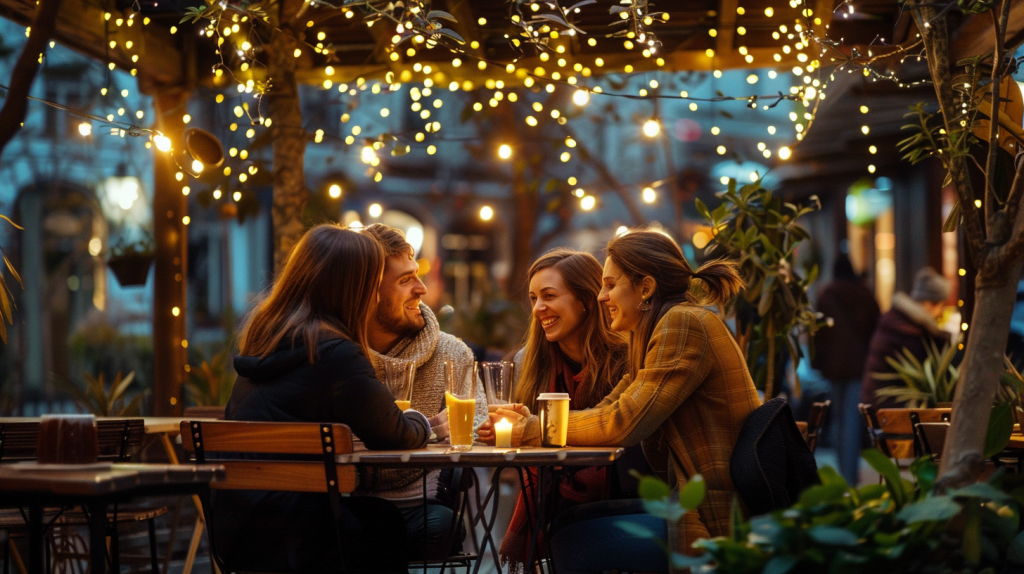
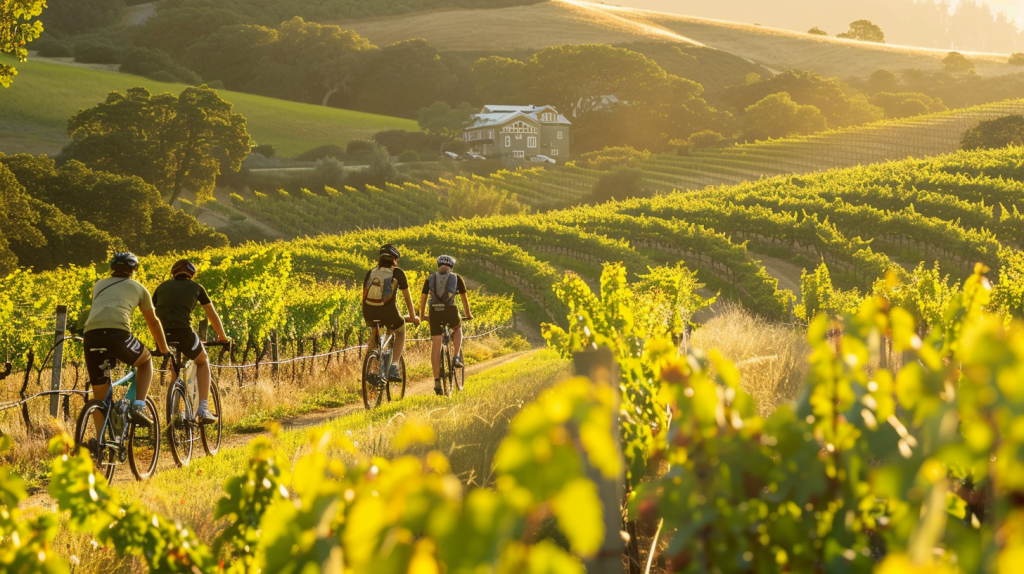
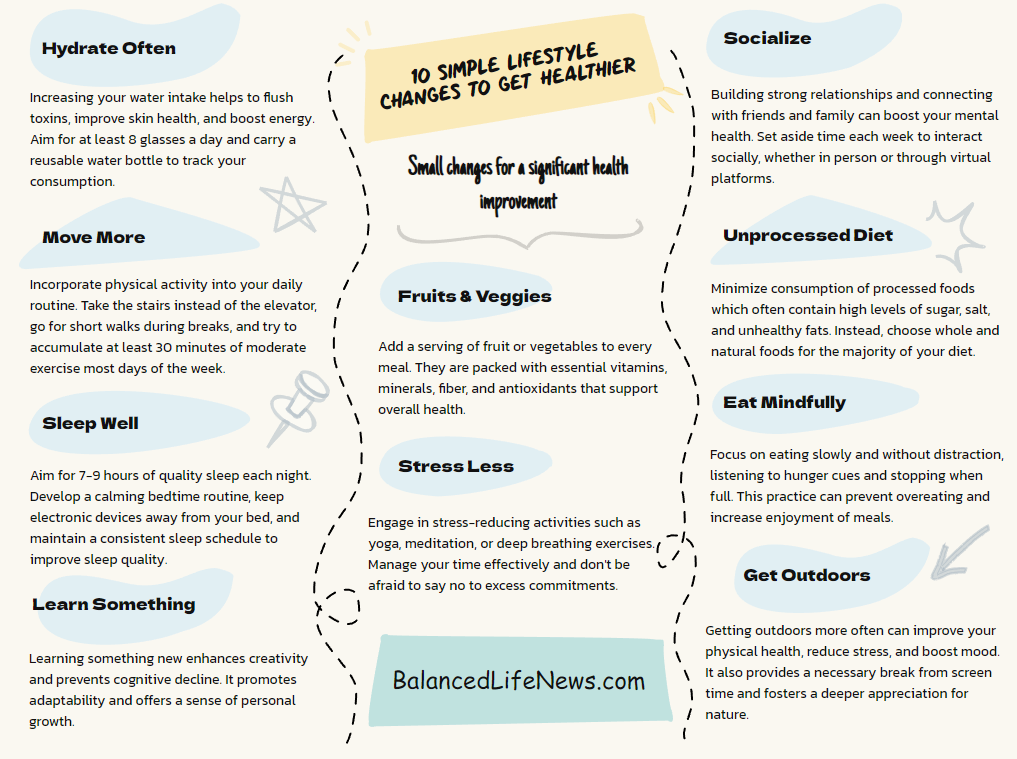
 From the early COVID days, everyone started talking about Dr. Zelenko. Click the bottle above to find out why or
From the early COVID days, everyone started talking about Dr. Zelenko. Click the bottle above to find out why or